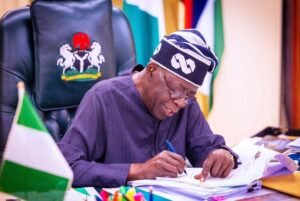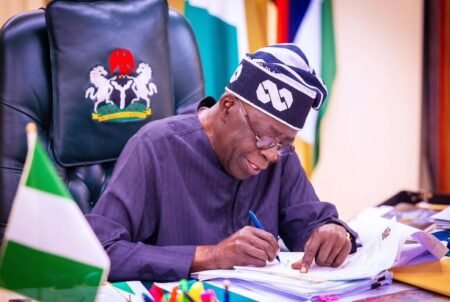Kenyan President William Ruto provoked protests lately after contributing $150,000 to a Nairobi church, just months after claiming that such handouts promote corruption.
Ruto’s donation of 20 million shillings to the Jesus Winner Ministry Church prompted demonstrators to gather there a week later, demanding the recovery of “stolen tax money”, only to be teargassed by police.
Church donations and fundraisers are long-standing traditions in Kenya, and politicians frequently use pulpits to reach out to the country’s primarily Christian population.
It may become political theatre: last year, MP Oscar Sudi, a Ruto supporter, earned applause from the congregation when he handed a sack carrying three million shillings (about $20,000) to a church in Uasin Gishu County.
However, the practice has become more controversial since massive protests against tax increases, corruption, and police brutality erupted in June.
In the aftermath, Ruto prohibited government officials from participating in church fundraising drives.
“No state officer or public servant shall participate in public contributions or any harambees (fundraisers) going forward,” he said in June.
“It is occasioning and it is breeding, if I may say, corruption,” Ruto added.
But he seems to have forgotten his commitment.
While police were teargassing students outside the Jesus Winner Ministry Church, Ruto was at another church in Eldoret, providing an additional 20 million shillings (about $150,000) and promising to raise another 100 million for Jesus Winner.
The president was defiant, dismissing contribution detractors as “people who don’t believe in God”.
The administration claims the money is from Ruto’s own funds, but many remain suspicious.
“Where is this money coming from? Bring us the receipts,” said Mwabili Mwagodi, who has helped organise the “Occupy Church” movement which aims to “disconnect the church from politics”.
The concept gained traction last year when the church remained silent during protests.
Preachers were eventually forced to break their silence after protestors coordinated flash mobs during services in Nairobi.
The Catholic Church of Kenya turned down a donation from Ruto after Mwagodi posted preachers’ contact information online and orchestrated a storm of complaints.
“I am fighting to liberate the Church from political corruption in Kenya,” Mwagodi posted on X.
A group of clergy have defended Ruto’s donation, describing it as a “Godly idea”.
Catherine Njoroge, a worshipper at Jesus Winner, told AFP, “He is filthy rich and can afford it.”
The church authorities rebuffed several requests to talk with AFP, and seven armed police officers guarded the site during a visit this week.
Critics accuse the government of illegally channelling public monies to churches in order to win votes, and they fear that the donations will be used for money laundering.
“Some churches use their huge congregations and platforms for purposes of giving politicians political capital,” said Nairobi-based lawyer Javas Bigambo.
“It has been encouraging corruption,” he told AFP.
The president used to agree, and last year introduced the Public Fundraising Appeals Bill, which is still pending, to increase transparency, but it exempted donations raised by religious organisations.
His office claims that the ban on political fundraisers remains in effect, despite the fact that some Ruto friends have subsequently publicly participated in them.
Spokesman Emmanuel Talam described Ruto’s new donation as a “personal contribution,” but did not explain how it differed from fundraising.
In election years, Kenyan politicians come to churches to deliver political speeches from the pulpit.
Some Christian politicians will even begin worshipping at mosques during the campaign.
Reverend Timothy Njoya, a well-known Nairobi preacher, criticises the practice.
Njoya battled for political and social justice throughout Kenya’s second president, Daniel arap Moi’s, authoritarian administration (1978-2002), and he retains scars from protest beatings.
He told AFP that political donations had transformed churches into “graveyards of spiritualism” and that preachers who accept the money “are selling their members for votes”.
Njoya, who is now retired, did not tolerate such behaviour at the time.
“Politicians came to my church, but they did not have the platform. I was the one preaching, not them. It was not their platform; it was God’s platform,” he said.










